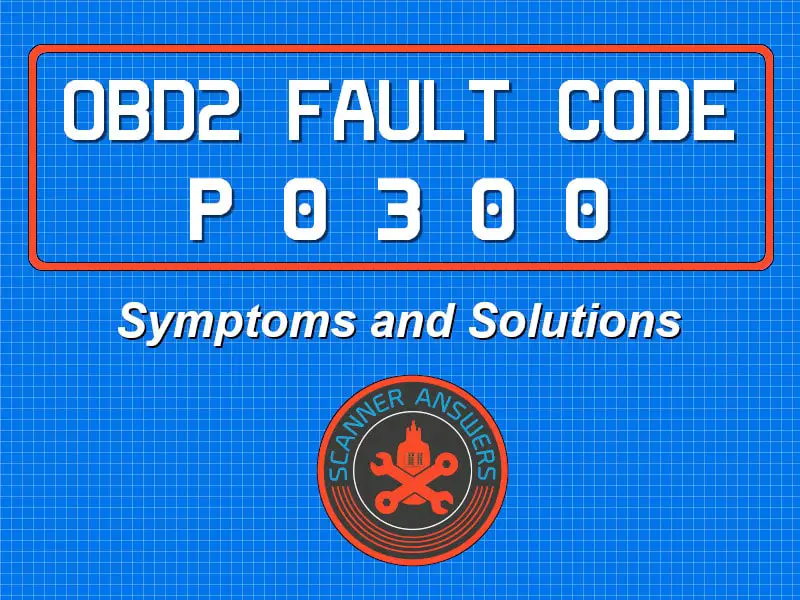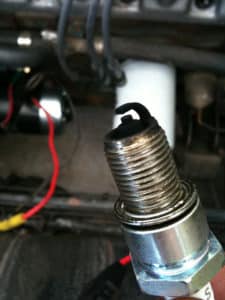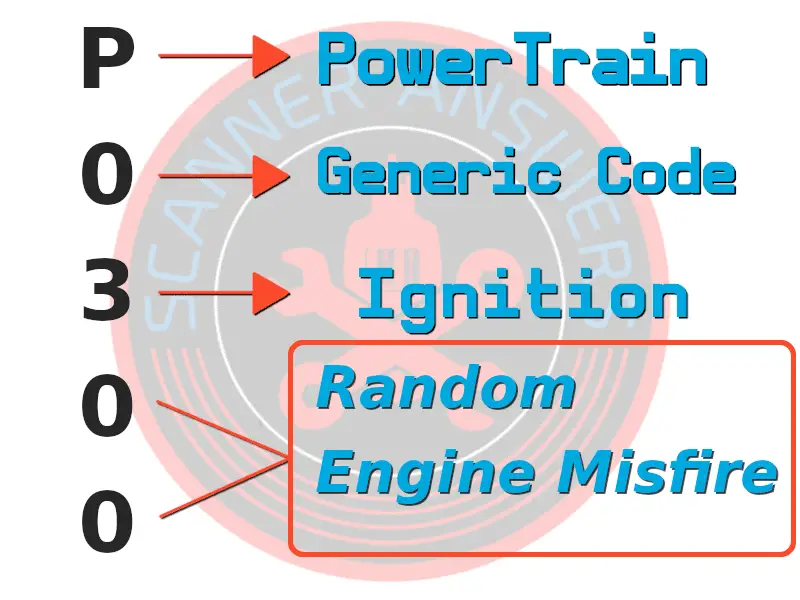
Meaning of P0300 Generic OBD2 Trouble Code
The technical definition of P0300 is: Random or Multiple Cylinder Misfire
Depending on how this fault is manifested via the check engine light, it could mean one of two things:
1. Engine RPM affected (increasing or decreasing) by 2%
If the misfire changes the engine revolution by 2 percent, the check engine light illuminates along with the P0300 code.
2. Engine RPM affected (increasing or decreasing) by 10%
The check engine light will illuminate and blink repeatedly. Of course, this feature depends on the make and model of your vehicle. But if for some reason the check engine light blinks while you’re driving (instead of simply turning ON or Illuminating steadily, it is a sign of a serious misfire or engine problem.
Take note that P0300 is an indication of multiple and/or random misfires across multiple cylinders.
As always, Scotty Kilmer, does a terrific video troubleshooting this generic fault.
What causes P0300 trouble code?
Unfortunately, the P0300 DTC can be triggered by many factors! Here’s the most common causes and what to start checking first:
- Spark Plugs and Wires – grab your socket wrench and pull out the plugs and make sure there’s no corrosion or oil on the threads.

You don’t want your spark plug to look like this! Image creds: Zach Zupancic – - Vacuum Leaks – try testing for leaks with a cigar!
- Fuel Pump or Fuel Filter – if the filter is clogged or dirty it can affect fuel flow and trigger this code. I like to replace the fuel filter first because it’s cheap.
- Bad Battery – your local parts store (we have NAPA and Autozone here) will usually test your battery for free.
Beyond that, the causes of the P0300 could be:
- damaged or worn out distributor cap
- clogged EGR valves
- bad ignition timing
- leaking head gaskets
- faulty camshaft and crankshaft sensors
If it’s is accompanied by other fault codes, it could also mean worn out or leaking fuel injectors. Learn more about testing fuel injectors on 2CarPros!
Because of the broad amount of parts that can cause this, it truly is a “Generic” OBD2 code!

What are the symptoms of P0300 DTC?
The symptoms will depend on the source and severity of the problem. Common problems include:
- Engine is harder to start or refuses to start
- Hesitation
- Vibration
- Severe lack of power
- Rough idling and poor fuel economy
In other cases, the symptoms will appear prior to the illumination of the check engine light. Don’t be surprised if the engine is showing signs of random misfires with no check engine light! There are times when the check engine light will suddenly flash before having symptoms of misfiring.

How much does it cost to fix a P0300 fault?
Since the fault is triggered by many possible causes, the cost of fixing the problem will vary. By nature this fault is random which makes it harder to isolate.
A competent mechanic will scan the ECU to confirm the P0300 trouble. The freeze frame data should be obtained before erasing the trouble code prior to making a test drive.
If the P0300 code is back after the test drive, the first thing to check is the spark plugs and spark plug wires. A decent set of spark plugs will cost anywhere from $20 all the way to $120 per set. It is also a good idea to check the spark plug wires and replace when necessary.
If the problem is caused by faulty or leaking injectors, you can expect to spend $300 – $1,000 for a complete repair.
You’ll spend about $50 – $100 if it’s is caused by a minor vacuum leak.
Mike